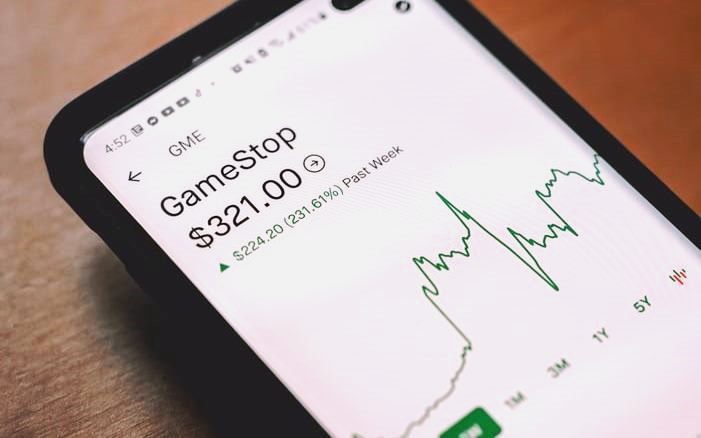Gamestop Is Becoming A Poorly Run Bank
↵

Image Source: Unsplash
GameStop’s (GME) actual business – selling video games and associated paraphernalia – isn’t doing so hot. Its other business – earning interest on cash that was handed over irrationally – is helping. But that makes GameStop more akin to a bank than a retailer. Shareholders would be better off sticking with an actual savings account.
After a years-long slide took its market value as low as $180 million in 2020, GameStop’s shares rocketed up 20-fold in early 2021 to touch over $80 apiece. Though sinking since to $23 per share, the company’s market capitalization now stands at around $8 billion. On an enterprise value basis, the company trades at a multiple of forward sales more than double that of Best Buy, a larger electronics retailer whose top line is also falling, though at a slower pace.
Management shrewdly took advantage of the euphoria, issuing equity periodically. Shareholders irrationally obliged, buying up a $2 billion offering earlier this month and $1 billion in late May. Add that to the $1 billion the company had on its balance sheet as of May 4, and its cash pile has grown eight-fold from the end of 2019.
While GameStop has tried to get its finances in order, the cash hasn’t been used to change its business meaningfully. Costs have come down, narrowing operating losses. But in the company’s most recent quarter, sales from hardware and accessories fell by more than 30%. Software sales were down by almost as much. And yet, GameStop came closer to breaking even. That’s in part thanks to the $15 million of interest it earned on its cash, after accounting for its own debt payments. Net losses were only $32 million.
That growing cash hoard represents quite a lifeline. Assuming the company continues its last quarter’s operating cash burn rate, its war chest won’t be depleted for another 10 years. Better yet: If it parks its new $3 billion haul in U.S. treasuries yielding around 5%, GameStop should make another near-$40 million in interest per quarter. That’s not too shabby for a company with a dying core business.
It’s in this way GameStop is acting like a bank, whereby it takes cash, and earns income above anything depositors – in this case, investors – demand in return. Meme traders might be convinced that what they’re getting, in lieu of steady interest, is a ticket to the stock’s next meteoric rise. The problem is, unlike at a real bank, shareholders are unlikely to ever get their money back.
Context News
Video-game retailer GameStop issued 75 million shares, raising $2.1 billion, the company said on June 11.
More By This Author:
What Is Market Efficiency And How Does It Impact Investors?
S&P 500 Earnings Dashboard 24Q1 - Saturday, June 22
Russell 2000 Earnings Dashboard 24Q1 - Thursday, June 20
Disclaimer: This article is for information purposes only and does not constitute any investment advice.
The views expressed are the views of the author, not necessarily those of Refinitiv ...
more

/production/original_577769942.gif)

